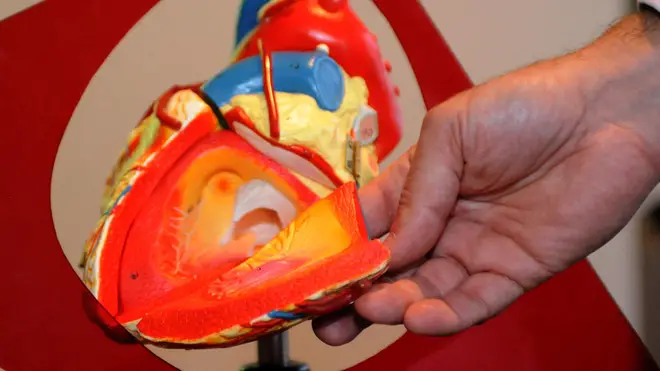
Ian Payne 4am - 7am
1 December 2020, 00:04

The National Institute for Health and Care Excellence has recommended the use of the Zio XT service while more data is gathered by the NHS.
New technology that can help individuals monitor their own heart activity has been given the green light by health authorities.
The National Institute for Health and Care Excellence (Nice) has recommended that patients use the Zio XT service to detect abnormal heart rhythms while further evidence of its benefits is gathered by the NHS.
The Zio XT service uses a discreet, lightweight patch that records and measures the heart’s electrical rhythm and can be fitted by a patient at home.
The patch is worn constantly for 14 days, during which data is gathered and analysed using an artificial intelligence (AI) led algorithm – producing an electrocardiogram (ECG).
A full report can then be supplied to an NHS clinician for final analysis and interpretation and treatment options can be decided.
Current technology used by the NHS only monitors heart activity for 24 hours and it is predicted that the larger data sets provided by Zio XT are more likely to pick up abnormalities.
Nice added that the process can be contact free and would minimise risk during the ongoing coronavirus pandemic.
More than 1.2 million people in the UK are diagnosed with atrial fibrillation (AF) – an abnormality of the heart’s rhythm.
Another 500,000 people are believed to be living with the condition undiagnosed.
If commissioned by the NHS, the Zio XT service could be used by more than 150,000 people.
Patients will have access to the technology for three years while more data is collected by the NHS to address evidence gaps about its benefit.
It will then be reviewed by Nice’s committee, which will make a final recommendation on whether to recommend Zio XT for routine use on the NHS.
Meindert Boysen, deputy chief executive and director of the Centre for Health Technology Evaluation at Nice, said: “This easy-to-use and innovative technology can aid the detection of cardiac arrhythmias with continuous monitoring for up to 14 days while allowing the patient to get on with their everyday life.
“The evidence shows that Zio XT increases how many people are diagnosed with cardiac arrhythmias.
“The diagnostic accuracy of the artificial intelligence-led algorithm looked to perform well in recognising arrhythmias.
“While we are pleased to recommend the use of Zio XT service, our committee has requested further data must be collected to allow us to fully understand its impact on NHS resources and the long-term consequences of its use.”